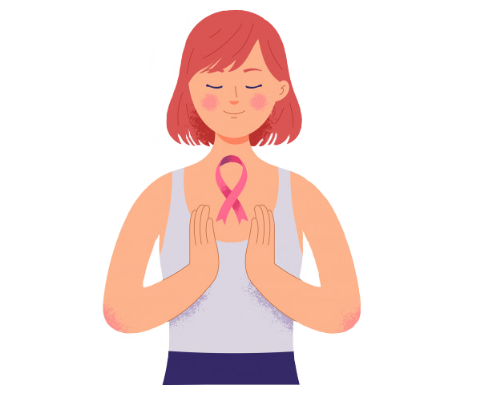
Arimidex (anastrozole) is a medication that has gained great popularity in medical practice and among athletes and bodybuilders. This drug has a wide range of applications, and its effectiveness is confirmed by many studies. In this article, we will consider what Arimidex is, what it is used for in the treatment of breast cancer, how to take it correctly, and what you should pay attention to when using it in bodybuilding.
Arimidex is a drug that belongs to the class of aromatase inhibitors. The main component of Arimidex is anastrozole. This drug is used to treat breast cancer that depends on estrogen (hormones that promote the growth of cancer cells). Arimidex works by blocking the process of converting male sex hormones into estrogens, thereby reducing the level of estrogen in the body. This reduces the risk of breast cancer recurrence and stops tumors from growing.
Arimidex is an important component of breast cancer treatment for postmenopausal women. Breast cancer is often associated with high estrogen levels, and Arimidex helps reduce this risk. The use of Arimidex can lead to slower tumor growth and a better prognosis for female patients.
The dosage and regimen of Arimidex is determined by the doctor and depends on the patient's specific situation and needs. Arimidex is usually taken once a day orally, preferably at the same time each day. Treatment with Arimidex may continue for several years. It is important to strictly follow the doctor's recommendations and not to change the dosage without the doctor's consent.

Some side effects may occur while using Arimidex. Some of the most common side effects include:
Changes in bone health: Arimidex may increase the risk of osteoporosis and bone fractures. Patients taking Arimidex are advised to consult with their doctor about precautions to maintain bone health.
Hormonal changes: Due to decreased estrogen levels in the body, hormonal changes including hot flashes, menstrual irregularities, and other symptoms may occur. These effects usually go away after you finish taking Arimidex.
Skin and joint side effects: Some patients may experience joint pain and dry skin.
Other side effects: These may include weakness, nausea, fatigue, etc.
It is important to note that effects and adverse reactions can vary from patient to patient and should always be monitored by the doctor.
Arimidex has also found its use in bodybuilding and fitness. Athletes who use anabolic steroids often resort to Arimidex to lower estrogen levels in the body and prevent side effects such as gynecomastia (enlarged mammary glands in men) and water retention in the body. Arimidex helps them maintain hormone balance and improve their workout performance.
Arimidex has also become an indispensable tool for athletes, especially those who use anabolic steroids. Here's how it can be useful in this area:
Managing estrogen levels: When using anabolic steroids, it can be a problem to increase estrogen levels, which can lead to unwanted side effects such as gynecomastia (enlarged mammary glands in men). Arimidex helps in maintaining the balance of hormones, preventing such problems.
Improved workout performance: Because Arimidex can help manage estrogen levels, athletes may experience improved workout results, including increased muscle mass and decreased body fat.
Reduced water retention: Arimidex helps to avoid water retention in the body, which can be beneficial for those who strive for a leaner and more defined appearance.
Before you start taking Arimidex or any other medication, be sure to consult your doctor. This is especially important when treating breast cancer, as only a specialist can determine the best treatment and dosage for you. Arimidex is a powerful drug and its use requires strict medical supervision.
In bodybuilding, you should also follow your doctor's recommendations and not abuse Arimidex. Health is always more important than training results, and only judicious use of drugs can ensure that you achieve the desired goals without harming your body.

Physician reviews of the drug Arimidex (anastrozole) vary depending on the medical field of its use and specific clinical situations. Here are some general physician opinions about Arimidex:
Breast Cancer: Doctors of oncology, especially those who specialize in the treatment of breast cancer, are often positive about the use of Arimidex. The drug has shown effectiveness in reducing the risk of recurrence and slowing tumor growth in postmenopausal women. It is also well tolerated by many patients.
Prevention of breast cancer recurrence: Doctors may recommend Arimidex as a preventive treatment after successful breast cancer treatment to reduce the risk of recurrence. They usually note its importance in preventing new recurrences.
Bodybuilding and sports: Sports doctors and coaches may also give positive feedback on the use of Arimidex in bodybuilding. The drug helps manage estrogen levels in athletes using anabolic steroids and may prevent unwanted side effects such as gynecomastia.
Side Effects and Surveillance: Doctors note the need for strict medical supervision and monitoring when using Arimidex. It can cause side effects such as joint pain and hot flashes, and requires regular medical monitoring to address possible problems.
Individualized Approach: It is important to note that doctors always take into account individual patient characteristics and disease patterns when prescribing Arimidex. This drug is not suitable for everyone and requires an individualized approach to treatment.
So, doctors' reviews of Arimidex are mostly positive, especially with regard to its effectiveness in treating breast cancer and preventing recurrences. However, it is important to remember that the use of any medication should be coordinated with your doctor, and the decision to use it should be based on your specific medical situation.


Buying Arimidex (Anastrozole) online can be a convenient and effective way to buy the drug, but you should be careful and follow certain rules:
Search for reliable and licensed pharmacies: It is important to choose online pharmacies that have a good reputation and provide legal and quality medications. Make sure that the pharmacy has proper licenses and certifications.
Prescription: Arimidex is a prescription drug and its purchase requires a prescription from a doctor. Contact a medical professional to obtain a prescription for the medication. Do not attempt to purchase medication without a prescription as it may be illegal and dangerous to your health.
Check for authenticity: When you receive the medicine, make sure that it is properly labeled, packaged and looks like an authentic product. Check the date and expiration date.
Payment and delivery: Purchasing the medication online also requires attention to payment and delivery issues. Make sure that the site provides secure payment methods and ensures your privacy.
The information provided in this article does not constitute treatment advice or an advertisement for the medication. You should always follow your doctor's medical advice and directions when buying and using Arimidex. Keep in mind that self-medication and purchasing over-the-counter medications can be dangerous to your health. The authors of this article are not responsible for consequences resulting from improper purchase, administration or use of the medication. Always consult a qualified medical professional before beginning treatment.